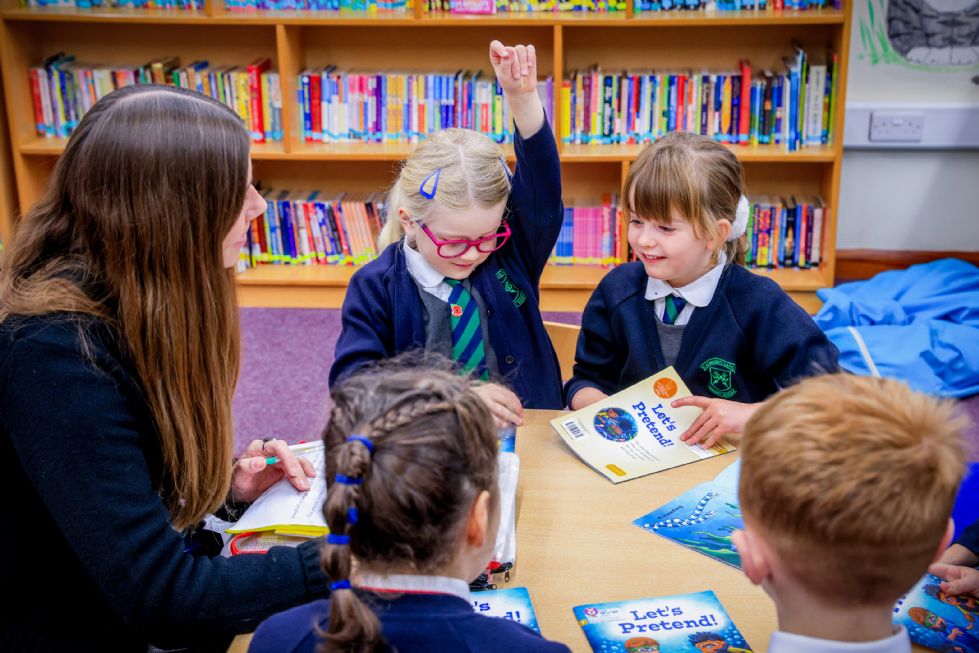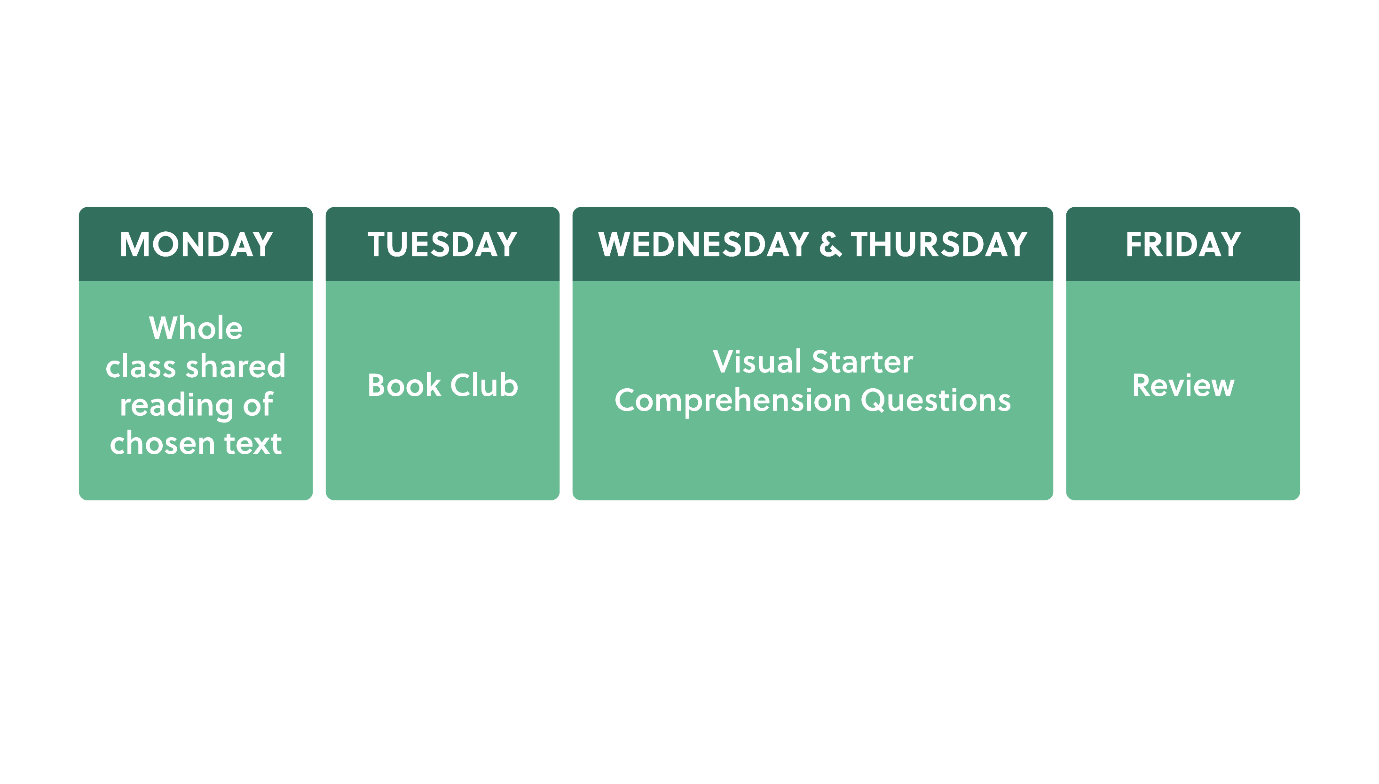Reading and Phonics

Intent
Inspiring reading is our passion.
Through reading in particular, children have a chance to develop culturally, emotionally, intellectually, socially and spiritually. It is very important to us that children are exposed to a range of high quality literature above their reading ages which challenges their existing levels of vocabulary and understanding. Reading also enables children both to acquire knowledge and to build on what they already know. We are committed to enabling our children to become confident, critical readers through our teaching and through their exposure to varied and challenging material. Stories, poetry, drama and media are used to encourage and motivate writing within the school.
Implementation

www.littlewandlelettersandsounds.org.uk/for-parents
We teach early reading through the systematic, synthetic phonics programme Little Wandle Letters and Sounds Revised. The foundations of phonics begins in Nursery . Our Nursery curriculum supports language development, story reading, phonological awareness and oral blending . Right from the start of Reception children have a daily phonics lesson which follows the progression for Little Wandle Letters and Sounds and this continues in Year 1 to ensure children become fluent readers.
We teach phonics for 30 minutes a day. In Reception, we build from 2-minute lessons, with additional daily oral blending games, to the full-length lesson as quickly as possible. Each Friday, we review the week’s teaching to help children become fluent readers.
Children make a strong start in Reception: teaching begins in Week 2 of the Autumn term. We follow the Little Wandle Letters and Sounds Revised expectations of progress (please click here for the progression).
Four new phonemes and their corresponding graphemes are taught (GPCs) each week and they are then used in the final lesson of the week to review the week’s learning. Children will also learn tricky words during these sessions.
In the Autumn and Spring term, Reception learn phase 2 and phase 3 GPCs and then will spend the final term learning phase 4.
Year 1 begin the Autumn term with 3 weeks of revision of phases 2, 3 and 4 before learning phase 5, which will be completed by the end of the year. Year 2 children will begin the year by revisiting phase 5 and other previously taught phases to ensure all children are completely confident with applying these GPCs in both their reading and also their writing.
Half termly assessments take place through Reception and Year 1 to help inform future teaching and help identify children who have gaps in their phonic knowledge and need additional practice. Daily assessment of learning also takes place within the classroom so staff can quickly identify any children who are in danger of falling behind and provide the appropriate daily ‘Keep Up’ intervention.
Children in Reception and Year 1, read fully decodable books with an adult at least 3 times per week during our ‘Reading Practice’ sessions. These books are then taken home for children to build their reading fluency and showcase their developing skills and phonetic knowledge to their parents/carers. These 3 reading practice sessions each have a different focus; decoding, prosody and comprehension. In Reception and Year 1, the children read the Little Wandle Letters and Sounds Revised Big Cat fully decodable books. They also take-home extra books from our reading schemes and our school library to share with their family and develop a love of reading.
Once the children have completed the Little Wandle programme and their phonic decoding skills have become automatic and fluent reading is established, they will continue their reading journey reading books from the coloured reading bands.
Reading from Year 2 – Year 6
Once pupils learn the mechanics of reading through a phonics programme, developing their comprehension skills becomes the primary focus in teaching reading. The skills and knowledge pupils need in order to comprehend are very similar at different ages. Therefore, we use a whole class, mastery approach to teaching reading from Year 2 through to Year 6. The programme we use is called Master Readers. This has proved very popular with the children as it allows them to dive into interesting and compelling stories as well as non-fiction texts. Each class studies a book each term, with daily reading sessions focussing on different chapters in the book. This approach helps children cultivate a love of reading as well as having a very positive impact on their reading comprehension.
The weekly cycle supports pupils in developing their reading ability across the week. Pupils have a 30-minute lesson to give them a daily opportunity to become true readers.

Alongside our Master Reader programme, the children engage in our Accelerated Reader programme, which enables them to access a wide range of engaging book choices, genres and authors. This ensures that children make text choices which present a suitable level of challenge, based on their individual ZPD range, therefore promoting accelerated progress whilst fostering a love of reading.
Impact
At St Edmund's, we are committed to fostering a love of reading that empowers children to become confident, fluent, and independent readers. Our reading curriculum is designed to develop strong comprehension skills, a broad vocabulary, and a deep appreciation for a diverse range of texts. Through high-quality teaching, engaging literature, and a language-rich environment, we ensure that all children, regardless of their starting points, make excellent progress.
The impact of our reading curriculum is evident in the way our pupils develop a lifelong passion for books, an ability to think critically about texts, and the confidence to articulate their thoughts and opinions. By embedding reading across the curriculum, we enable children to apply their skills across all subjects, enhancing their overall academic success.
We regularly assess progress to ensure that each child is supported and challenged appropriately, fostering a culture of achievement and high expectations. As a result, our pupils leave primary school as proficient readers who are well-prepared for the next stage of their education and beyond, equipped with the skills they need to succeed in an ever-evolving world.
Promoting a love of reading
Developing a love of reading amongst our children is a real passion at St Edmunds. We hope the below book lists will support your child’s reading journey at home.
Reading with your child is a wonderful way to develop a love of reading. Talking about the texts we read is an excellent way to develop your child’s understanding and critical thinking skills. With this in mind, we have some suggested questions that you might want to use to talk about what you have read. Asking your child just 2 or 3 questions will encourage them to be more reflective and will help develop critical thinking skills.
Pupils' Feedback on Reading
Year 6:
‘The Book Club questioning means you get to develop a deeper understanding of the book.’
‘We like hearing the stories read aloud and people get help to read the different words – it’s supportive.’
‘It has definitely improved my comprehension.’
Year 5
‘We are grabbing information in a fun way for reading comprehension.’
‘I like writing summaries of the books, it helps my own writing.’
‘I love reading so it’s nice to read and get a deeper understanding of the book.’
Year 4
‘The books have been really interesting and exciting.’
‘I like it when we end of a cliff-hanger - you can guess what’s going to happen next.’
Year 3
‘I like master readers especially Monday and Tuesday when we read a new chapter and do book club where we summarise, predict, clarify and do questioning.’
‘I like master readers because you’re searching for the target words and I like it on a Friday because we get to discuss what we’ve read.’
‘We have got a lot better at answering the comprehension questions.’
These websites also have lots of suggestions which we highly recommend:
https://www.thereaderteacher.com/
https://www.booktrust.org.uk/books-and-reading/our-recommendations/
The Oxford reading Owl website also has some good suggestions on how to support reading at home. https://home.oxfordowl.co.uk/reading/common-reading-issues/struggling-readers/
They also have a free eBook library to help children develop their reading skills at home. Registration is free! https://home.oxfordowl.co.uk/reading/free-ebooks/
If you are worried about your child's interest in reading, then always talk to their class teacher.
Early Reading Help
Helping your child to read – early reading with your child. A short video with great tips.
https://www.youtube.com/watch?v=6QVfbYvPaAM
Phonics at home
Supporting your child with -saying their sounds and writing their letters - parent resources directly from Little Wandle
https://www.littlewandlelettersandsounds.org.uk/resources/for-parents/
